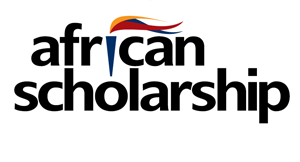Leading change
Towards truly African scholarship

Decolonising the curriculum is no small matter, and entails closely examining systems of knowledge production, epistemologies, methodologies and the impact and role of languages in producing new knowledge. At Unisa various initiatives are in place to deal with the issue of curricular and research reforms.
A major pillar in our programme for change, is the decolonisation of scholarship to assist the university in its effort to become the African University shaping futures in the service of humanity, led by the Change Management Unit established in the Office of the Principal and Vice-Chancellor. Their work is guided by our curriculum policy "to promote African thought, philosophies, interests and epistemologies through inquiry, scholarship and partnership". Seminars, colloquia, debates and focus groups are planned to explore the nature of knowledge production, epistemic justice and an infusion of new thought paradigms. To this end, the process to finalise the Unisa language policy is an immediate objective.
Rethinking key areas of knowledge production
Concerning the theory underpinning curricular decolonisation much has already been achieved by the Department of Science and Technology/National Research Foundation Chair in Development Education at Unisa. The chair is part of a new way to visualise knowledge and democracy for South Africa. Its fundamental contribution is not just to a new vision for Unisa, but also to the democratisation of democracy in the broader context. It emphasises the importance of academia in turning the previously colonised into participants in a new and moral and cognitive venture against oppression through the development of a plurality of insights and critical traditions.
A formidable arsenal for change
In addition to the Research Chair in Development Education, Unisa has a variety of institutes and programmes that are leading from the front in the area of African scholarship and knowledge production. These include the following:
- The Institute for African Renaissance Studies, which studies multidisciplinary, interdisciplinary and transdisciplinary paradigms.
- The Institute for Open and Distance Learning, which undertakes ODL research in Africa and internationally.
- The Thabo Mbeki African School of Public and International Affairs, which encourages debate on the continent's future and invests in the training of tomorrow's leaders.
- The Archie Mafeje Institute for Applied Social Policy Research, which conducts applied research into the discourses of the family and family life, and the impact of poverty in South Africa and beyond.
- The Institute for Global Dialogue, which was originally established as an independent South African-based foreign policy think-tank dedicated to the analysis of and dialogue on the evolving international political and economic environment and the role of Africa and South Africa. It was established as a culmination of efforts led by South Africa's founding father, the late President Nelson Mandela to have a research organisation in South Africa that would facilitate the new South Africa's engagement with the changing global order after 1994, driven by the motto "Towards a better Africa. Towards a better world".
- The Institute for Dispute Resolution in Africa, which was established in 2011 and falls under auspices of the College of Law. Notwithstanding this, its research agenda is multi-, inter- and trans-disciplinary and not confined to the legal discourse. Its primary function is to research global and African knowledge systems that relate to dispute processing and dispute resolution, thus utilising law as a structural foundation and community knowledge as an empirical foundation.
- The WIPHOLD-Brigalia Bam Chair in Electoral Democracy in Africa, which contributes to shaping Africa’s future through research, capacity building for African electoral officials, and collaboration with scholars in the continent and in the African diaspora.
- The Institute for Social and Health Sciences, which is as an Africa-centred institute of excellence devoted to safety, peace, health and equality. The institute is committed to science and compassion in the service of community, with Africa-oriented research, expertise and community development at its core.
Programmes such as the Africa Speaks Programme in the College of Human Sciences are aimed at nurturing and developing a vibrant community of researchers and intellectuals, and exposing mainly younger academics to top-notch scholarship by African scholars from the continent and the diaspora.